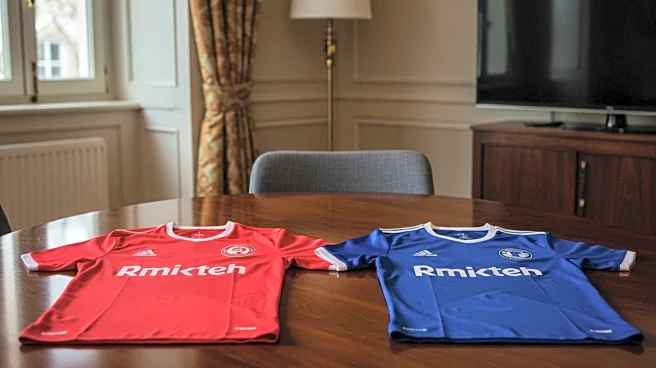What's Happening?
Manchester United is reportedly firm on its valuation of Alejandro Garnacho, a target for Chelsea, as the club anticipates an opening bid from Stamford Bridge. United seeks a fee of no less than £50 million for Garnacho, an Argentina international and academy product, which would be pure profit for the club. Chelsea, however, must first offload at least two first-team forwards before proceeding with Garnacho's transfer. Meanwhile, Tottenham Hotspur has engaged in direct talks with Crystal Palace over Eberechi Eze, with a proposed deal worth £55 million plus add-ons. Liverpool, Manchester United, and Tottenham are also interested in Brentford's Nathan Collins, although Brentford is reluctant to let him go.
Why It's Important?
The transfer negotiations involving Garnacho and Eze highlight the strategic moves by Premier League clubs to strengthen their squads while adhering to financial regulations. Manchester United's stance on Garnacho's transfer fee underscores the importance of academy products in balancing financial books under profit and sustainability rules. Chelsea's need to sell players before acquiring new ones reflects the club's efforts to manage its roster and finances effectively. The interest in Nathan Collins by top clubs like Liverpool indicates a competitive market for defensive talents, which could impact team dynamics and league standings.
What's Next?
Chelsea's next steps involve negotiating player sales to facilitate Garnacho's acquisition, while Manchester United remains steadfast in its valuation. Tottenham's discussions with Crystal Palace over Eze could lead to further negotiations or adjustments in the proposed deal. Liverpool's pursuit of defensive reinforcements, including Collins, may intensify as the transfer window deadline approaches, potentially leading to strategic shifts in their defensive lineup.
Beyond the Headlines
The transfer activities reflect broader trends in the Premier League, where financial sustainability and strategic squad management are increasingly crucial. Clubs are leveraging academy products and engaging in complex negotiations to optimize their rosters while complying with financial regulations. These moves could influence long-term team strategies and league competitiveness.









